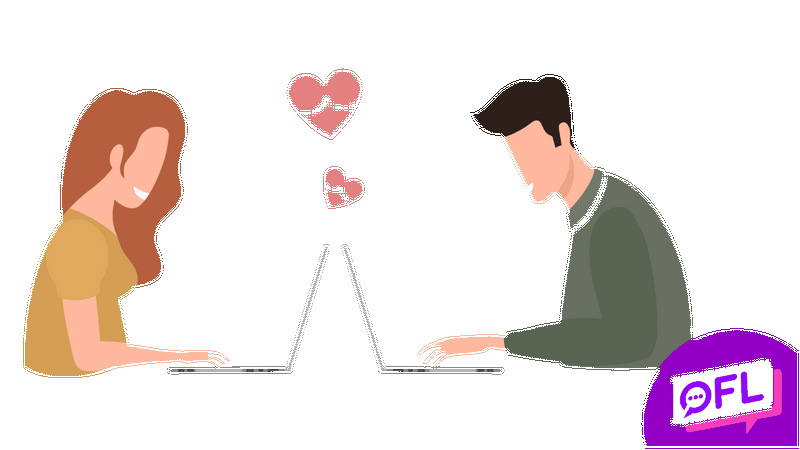Online dating in the US has actually come a long way and is swiftly ending up being the technique of selection for American songs seeking a partner. However, exactly how does one pick in between free dating sites and those that provide even more? At EliteSingles we offer both a cost-free taste of our site and a committed premium solution for those major about finding love. Discover below which plan is right for you.
Elite Songs has belonged of the on-line dating scene given that 2008, providing a niche room for enthusiastic singles concentrated on job and education. You can use the standard subscription at no charge to you with access to limited features. Upgrading to a premium subscription boosts access to functions or permits you to take a bigger leap right into the system’s potentially pricey matchmaking realm.
Forbes Wellness testers were greatly dissatisfied with the degree of engagement, repetitive match ideas and usability; nevertheless, they valued the level of information in private profiles.
Elite Singles at a Glance
- Enthusiastic matches. Elite Songs asserts that 85% of its individuals are very informed, using the capability to get in touch with suits who may share the same enthusiasm and drive.
- Provides a premium matchmaking solution. Collaborate with a specialized matchmaker for hand-selected and vetted matches based upon your one-of-a-kind criteria.
- Wide suit choices. Individuals can set a wide range of criteria they want to see in prospective matches, such as education and learning, gender, age, elevation, distance, political ideas and even more.
EliteSingles free dating services
When you sign up for an EliteSingles cost-free online dating solution, you’ll be invited to take our comprehensive character test; an insightful evaluation of your individual top qualities that is based upon leading emotional research.you can find more here www.pplaymusic.us/ from Our Articles You have the ability to take the test and view a report of the results, all entirely at no cost. When you join our website, you’ll additionally be able to produce an account, see suits and receive messages free of cost: a great method to uncover if EliteSingles is right for you.
How Does Elite Singles Work?
To get started on Elite Singles, you initially require to go into the basics, including info like your given name, location, day of birth and sex (only male and women alternatives are offered). Next off, the platform asks for your education and learning degree, line of work, political belief, religions and qualities that describe you (such as being a great listener, outgoing, imaginative, etc) After that, you’re tasked with sharing up to 7 passions, such as outdoor camping, clubbing, funny, meditation, films and even more.
Elite Songs also asks if you have children, whether you desire kids in the future, your elevation and how frequently you smoke and drink. You then can create a bio concerning on your own, which the company notes can aid get you as much as 50% more suits.
After you’ve completed the intake parts concerning on your own, the system gets into what you’re looking for in a partner. For example, you can indicate whether you wish to connect with males or females, the sort of connection you seek (laid-back, long term and more), exactly how far you want to travel to day (you can choose approximately 1,000 miles) and an age array (capacity to choose anywhere in between 18 and 99). Lastly, you’re entrusted with uploading a minimum of two pictures of yourself, however you may submit approximately 6.
When you have actually submitted your images, you’re ready to begin dating. On the left side of the display, there’s a ‘Discover’ tab where individuals can search and either like or do not like accounts. Below this tab, there’s a ‘Recommended’ tab, where the system curates 3 or more recommended accounts for you to get in touch with. There’s additionally a ‘Liked You’ tab to see users who have liked your profile.
Below the ‘Liked You’ tab lies the ‘Matchmaking’ tab. When you click into this location, you are prompted to start another sign-up procedure, asking for your name, birthday celebration and sex once more (this time around, nonbinary was an alternative, in addition to male and female). Within matchmaking, it also asks about your top dating concerns and the nation or region in which you live (choices include united state, Canada, Europe, Australia, Africa, Asia, the Center East and South America). Various other questions consist of area code, your professional situation, whether you’re ready to economically buy dating success (action choices included ‘I’m not in a setting to spend today,’ ‘$4,000 to $8,000,’ ‘$8,000 to $12,000′ and ‘$12,000+’), your annual revenue range and whether you prepare to progress with matchmaking right away if accepted. (This investment might indicate what you’re willing to pay a matchmaker, however throughout the sign-up procedure, the precise price was unclear.) You then submit all these actions to see if you’re a suitable for the matchmaking service, and, if so, you’ll reserve a phone call with among Elite Singles’ matchmaking specialists.
Underneath the Matchmaking tab, you can access your chats and your profile.
EliteSingles Costs Dating Membership
Certainly, if you’re serious about finding love online you’ll normally be aiming to devote more of on your own to the search. And this is where entirely cost-free dating sites can be wearisome: all too often you’ll discover that you are the only specialized one in a sea of American singles only after one thing (and it’s probably not commitment!). EliteSingles uses the opportunity to update to our costs dating service specifically because this totally free dating aggravation is so common
It’s our method to provide marriage-minded US songs a method of discovering others that are sick of the unprofessional nature of modern dating – and that prepare to go the extra mile in order to discover long-term love and true compatibility.



